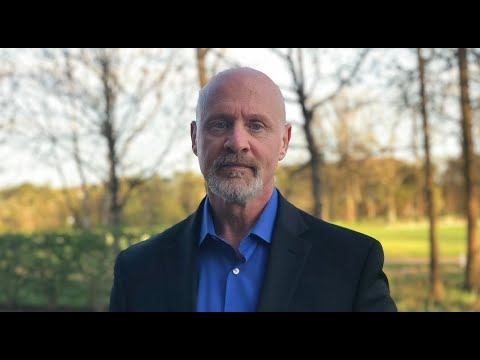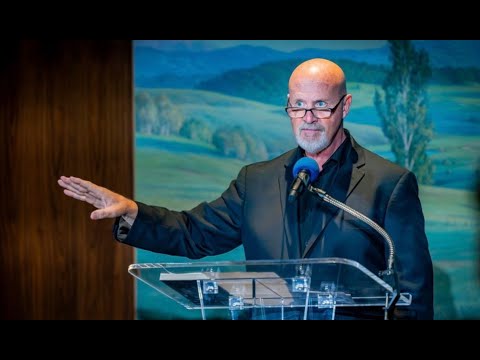Every Tuesday and Thursday evening, hundreds of kids descend on a suburban Perth park — but this isn’t your average weeknight training session at a local soccer club.
Each child can attend for free.
The trade-off is parents must volunteer. Some coach, others fry up chips in the canteen, run raffles, and wash kits.
Jesika Mangoska has been bringing her two boys for the last few years.
ABC News: Jessica Warriner
)“The whole house gets involved,” she said.
“We set up the goals, the nets, the balls, cones.
“[Sport registration] costs are high, especially when you’ve got more than one child involved.
“Especially in our day and age, when lots of families are coming from everywhere and living on a minimum wage.”
‘Born out of necessity’
Families are forking out a median of $600 a year for their kids to participate in sport, according to the latest data from Sport Australia’s 2020 Ausplay survey.
The cost is higher for girls at around $680 per year, compared to boys at $500 per year.
If you look at the mean figures, which include outliers, the costs blow out to $1,061 per child.
At Balga Soccer Club, located in the heart of one of Perth’s most disadvantaged areas, the fee-free program was “born out of necessity'” club president Ken Shorto said.
ABC News: Jessica Warriner
)“A few girls wanted to come and play here, they couldn’t afford it,” he said.
“We said you can play at no charge if you just help around the club.
“They did that for a year, and at the end of the year we looked at it and said why don’t we expand this to include everybody, all juniors?”
The fee-free program was born – children of members could play for free, with the $40 membership cost able to be waived the following year if members’ volunteering went above and beyond what was expected.
Big volunteer boost
The program has started to tackle one of the perpetual problems for local sport clubs — getting volunteers on board.
Many clubs have compulsory volunteering arrangements for families, while some have introduced volunteer levies into the hundreds of dollars to try and push more people into lending a hand.
“Nothing across the board works, it’s got to be a mixture of whatever you can make work for the situation, every situation is different,” Mr Shorto said.
ABC News: Jessica Warriner
)The club president said there had been a significant increase on previous volunteering rates since the fee-free trade-off was introduced — and it was volunteering and sponsorships that kept the program, now in its fourth year, afloat.
“I understand it’s difficult for a lot of clubs because they have higher overheads,” he said.
“It’s hard work.”
Pandemic a blow to clubs
Now, clubs are also grappling with the impact of COVID-19 on volunteering.
In one country league in Victoria, reserves have been acting as their own boundary umpires.
The latest AusPlay population estimate on adult volunteering in sport or physical activity was 3.1 million people, up until October last year.
However, the figures showed more than 2 million of those volunteers hadn’t resumed their normal volunteering levels in the wake of coronavirus.
Sport Australia said it did not yet know how these figures may have changed since last October, but the numbers would come over time.
ABC News: Jessica Warriner
)Balga is one of many clubs still experiencing the fallout.
“COVID really hit us — not financially, but involvement,” Mr Shorto said.
“We’re not back to [pre-COVID] levels to be honest, but we’re getting very, very close now.”
Creating a community
For mum Kiara Govan, Balga’s fee-free program got her two sons out on the pitch for the first time.
“[If they weren’t here] they’d probably be sitting at home playing on their devices or something,” she said.
“It definitely makes a difference — some parents can’t afford things, so it’s good to be able to get everyone involved in playing soccer.
“It gets community together, families, it builds relationships and bonds with people.”
ABC News: Jessica Warriner
)Compulsory family involvement in the program has brought a boost in social ties for kids and parents alike.
“We’re creating a community, that’s what it is,” Mr Shorto said.
“The Balga area is a completely multicultural community, the Balga Soccer Club is exactly the same.”
‘This is Balga’
Parents and club officials want to see more clubs take up the challenge of cutting costs to access sport where possible.
“I’d like to see us continue to make other people a little bit embarrassed,” Mr Shorto said.
“A little bit reflective on how they’re working, so maybe the whole system can change for the better, so more children can play without restrictions and restraints.”
He said the club also wanted to change the perception of a program’s value coming from its cost.
“A lot of people thought initially that it was a free program so it’s lower rung, but it’s not,” he said.
“We certainly get stereotyped a lot.
“This is Balga — we’re proud of Balga.”






